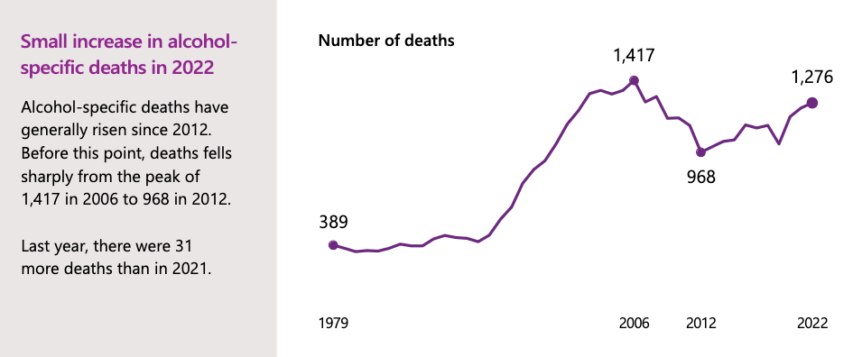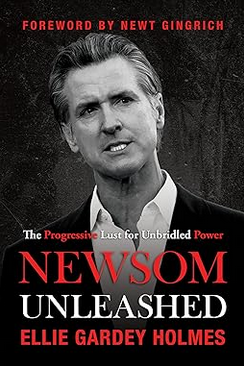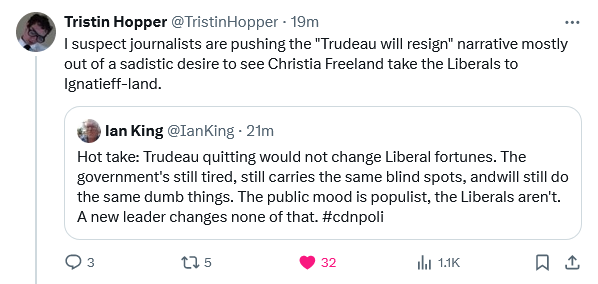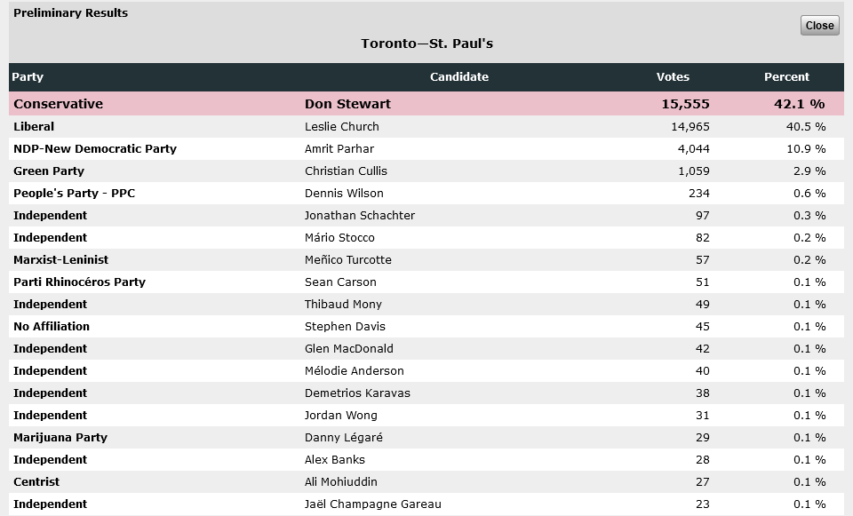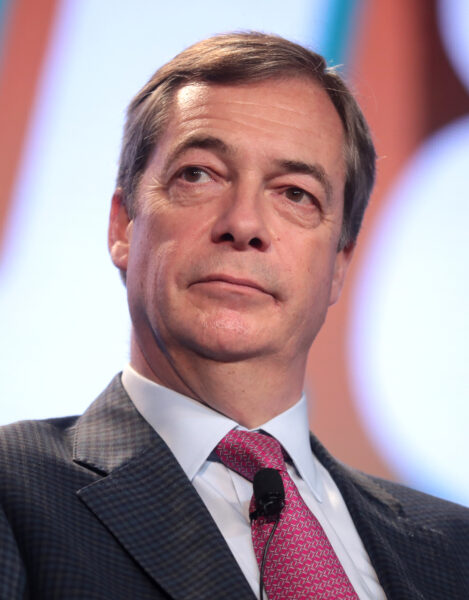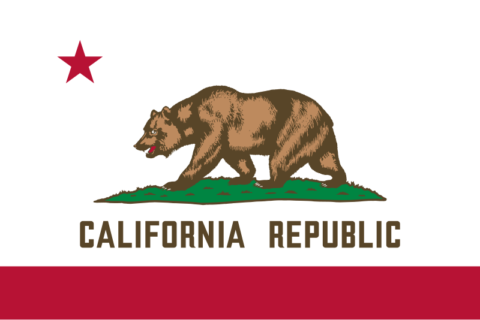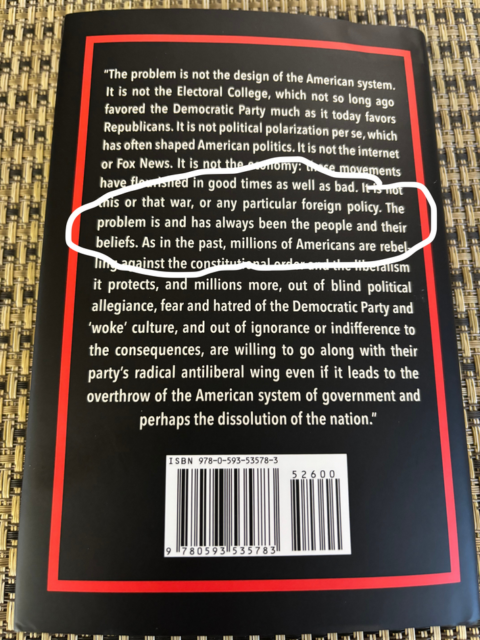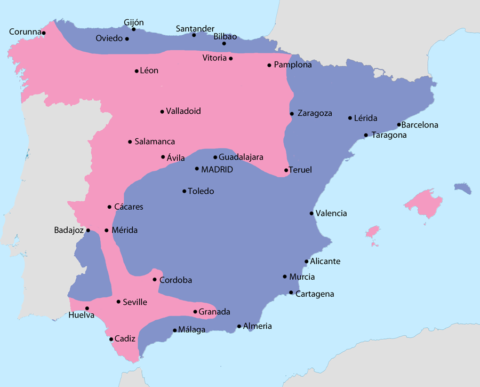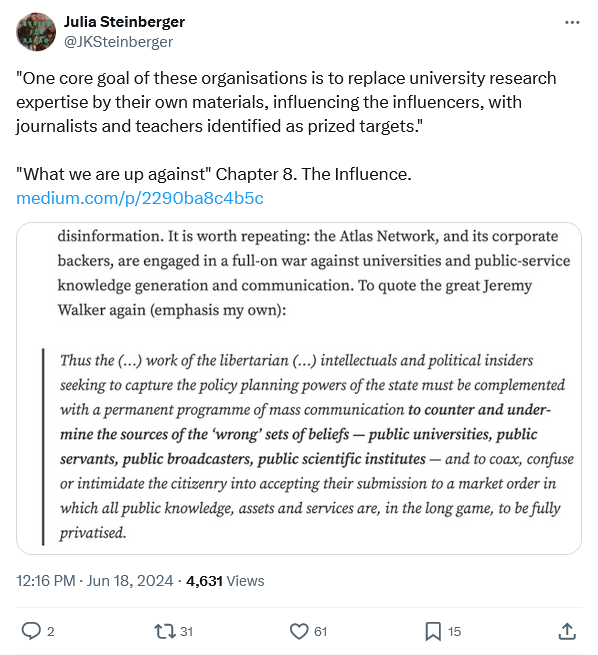Right wing Americans need their own version of consciousness raising and appreciating the “different ways of knowing” marginalized white Americans and right wingers have.
We’ve been trained by generations of left wing television, schooling, and academia to defer and treat the most noxious and stupid bleatings of uninformed women, non-whites, gays, and religious minorities as sacrosanct pieces of insight we’re supposed to wrestle with … whilst at the same time we’ve been treated to presume any white male over a certain age with unusual mannerisms or a disregard for left wing shibboleths is dangerously low status and deranged, when in reality it is the opposite.
Looking at the past 50-60 years, the Grumpy Granddads, hilly-billy mystics, and aging conspiracy theorists have consistently been more right than the mainstream.
If in 2002 you had to pre-commit to believing everything Alex Jones said, or everything CNN said for the next 20 years … You’d have been a fool to pick CNN. Indeed if you took their diet and medical advice you’d probably be dead.
The Archie Bunkers and Deryl Gribbles have consistently been years ahead of the mainline right for seeing the truths of the regime.
Now obviously like Greek heroes consulting the oracle at Delphi, or spirit questers visiting shamans … you have to assume you won’t understand half of what they say, most of it will fly over your head, and a good chunk probably isn’t even meant for you but the other spirits in the room …
But the signal to noise ratio of our hermits and kooks are thousands of miles beyond whatever left wing diversity chicks are getting from the native grifters they entertain at their campus events or the black “we wuz” consciousness raisers they shovel money at.
The old white shamans have been resisting the government since decades before you were born and they remember the all the little episodes official history likes to forget.
Like a young a adept consulting an old sage or a seeker consulting an old monk do not say “I don’t believe that” instead say “Hmm …” or “I am not yet that far down the path”.
Kulak, “The Myth of the Stupid Right”, Anarchonomicon, 2024-03-28.
June 29, 2024
QotD: The kooks and conspiracy theorists have a better track record than CNN
June 28, 2024
June 27, 2024
The Toronto Star wants Ontario to adopt Scottish booze regulation (but ignore the failure)
The Toronto Star always loves a good moral crusade, and if it also happens to fly in the face of whatever Premier Ford wants to do, then so much the better:
The Toronto Star is looking to Scotland to teach it how to reduce alcohol-related deaths. In an article titled “How Scotland started to kick its alcohol problem — and what Ontario could learn from it“, it pushes back on plans to liberalise Ontario’s state monopoly on alcohol retail, saying:
Ontario officials say they are fulfilling a 2018 election promise to increase “choice and convenience for shoppers and support Ontario retailers, domestic producers and workers in the alcohol industry”.
But Scotland has cut alcohol-related hospital admissions by 40 per cent and deaths by almost half. While in Ontario, alcohol-related admissions have risen by a third and deaths by almost half, according to the Canadian Centre on Substance Use and Addiction.
How did Scotland supposedly achieve this public health miracle?
The key part of Scotland’s landmark policy was aimed at reducing drinking by introducing minimum unit prices to make drinking more expensive.,/p>
Ontario already has minimum pricing and Scotland doesn’t have a state alcohol monopoly, so it is not obvious what lessons Ontarians are supposed to be learning, but put that to one side for a moment and consider the main claim.
Anyone who has been following events in Scotland knows that alcohol-specific deaths have risen since minimum pricing was introduced in 2018 and have generally risen since 2012 following a significant downturn in the years prior.
It is that drop between 2006 and 2012 that the Toronto Star must be referring to when it claims that deaths fell by “almost half” (actually a third). But the Scottish government didn’t pass any anti-alcohol legislation in those six years and it certainly didn’t have minimum pricing. The newspaper mentions that the drink-drive limit was cut, but that didn’t happen until 2014 and the evidence is clear that it had no effect on road accidents.
Since the Toronto Star doesn’t mention when the decline in alcohol-specific deaths took place, it is leading its readers to believe that it coincided with the introduction of minimum pricing and the lowering of the drink-drive limit. I call that lying.
It is strangely fitting that Canadians are being lied to about the “success” of Scotland’s alcohol strategy since the Scottish public were conned into accepting minimum pricing, in part, on the basis of lies told about the “success” of minimum pricing in Canada. The neo-temperance academic Tim Stockwell, who is quoted in the Star article, published a series of studies in the 2010s making some absurd claims about minimum pricing that were parroted by campaigners in the UK.
California’s Trudeau
In the New English Review, Bruce Bawer reviews Newsom Unleashed: The Progressive Lust for Unbridled Power by Ellie Gardey Holmes, a biography of California’s own Justin Trudeau:
I’ve been appalled by Gavin Newsom for years, but to read Ellie Gardey Holmes’s powerful and unflinching new book Newsom Unleashed: The Progressive Lust for Unbridled Power is to find one’s contempt for this hideous creature skyrocketing. If he has any redeeming qualities, any special gifts, any attributes that might illuminate an admirable and recognizably human side, there’s no sign of them here. This is a man who, despite having no discernible talent for governance or anything else, was lucky enough to be born into one well-off family – his great-grandfather co-founded the Bank of Italy, which later became the Bank of America – and to be, from earliest childhood, a sort of honorary member of an even richer family, the Gettys, his father being best friends with oil magnate Gordon Getty, who was like a second father to young Gavin.
Both men, his biological father and his second father, used their considerable influence from the beginning to help Gavin rise to power. Indeed, as surely as any Kennedy or Bush, Gavin Newsom was born into a political machine and bred to be a politician. After he and Getty played a big role in helping Willie Brown to get elected mayor of San Francisco, Brown named Newsom to the city’s Parking and Traffic Commission. Soon he was promoted to the Board of Supervisors, a post he held from 1997 to 2004. “Because of his lack of qualifications,” writes Gardey Holmes, “Newsom entered office entirely indebted to Willie Brown”. Observers referred to him, in fact, as “an appendage of Willie Brown”. Quick sidebar in the midst of this tale of political advancement: when his mother was dying, Gavin was pretty much AWOL, although he was present when she underwent assisted suicide – which, at the time, was illegal in California. Others had been prosecuted for their participation in such actions; Gavin was not, a foreshadowing of many other occasions on which he would be treated as exempt from the rules governing the behavior of ordinary mortals.
In 2003 he was elected mayor. One of his first acts was to authorize the issuing of marriage licenses for same-sex couples, even though he had no power to do any such thing. He even performed some of the marriages himself. This cynical move (which even California’s two Democratic Senators, Dianne Feinstein and Barbara Boxer, opposed) was a cheap stunt, carried out at the expense of gullible gays, whose marriages were soon enough ruled invalid by the state Supreme Court – but it had the desired effect. It made him a national figure and it won him the esteem of the mainstream media. Bob Simon told him on 60 Minutes that he might well have “set a record for instant fame in this country”.
From the beginning of his life in “public service” – that laughable term – Newsom’s vanity and ambition were flagrantly palpable. Although the New York Times described him during his mayoralty as the subject of “local adoration”, some San Francisco insiders resented his brazen focus “on self-aggrandizement and personal publicity” and his relative indifference to the city’s growing problems on a variety of fronts. Routinely, he stole credit for other people’s initiatives and acted as if he were exempt from the rules. A police officer drove him to his wedding in Montana in his official SUV – a definite no-no.
After two terms as mayor he had his eye, naturally, on the Governor’s Mansion – but polls convinced him to run for Lieutenant Governor instead. He spent two terms in that job, too, but hated it: he had no real power, no real staff, no real budget, and he felt disrespected by his boss, Jerry Brown. The initiatives he did support were destructive “progressive” bilge of the first water: for example, he was the only statewide elected official to support Proposition 47, which converted many felonies to misdemeanors, helping to set off the still ongoing rash of shoplifting that has made San Francisco, particularly, an international joke. For the most part, however, instead of addressing the state’s problems he put his energies into enhancing his national profile. He became a fixture on shows like Real Time with Bill Maher. He also wrote – or at least signed his name to – a book calling for the transformation of government by means of “digital technology”; the book’s argument didn’t make much sense, and even Stephen Colbert, usually a reliable left-wing shill, dismissed it as “bullshit”.
And then, inevitably, in 2019, Newsom became governor, thanks in no small part to massive donations from the Gettys and Pritzkers and his role as “the darling of the upper class”. California was already on the skids, but Newsom accelerated the process. He pulled National Guard troops from the southern border, saying that “[t]he border ’emergency’ is a manufactured crisis and California will not be part of this political theater”. He even had the state sue President Trump over his border emergency declaration, which according to Newsom was nothing but an expression of “division, xenophobia, [and] racism”. Instead of canceling one of the state’s notorious boondoggles – the program to build a staggeringly expensive high-speed rail line from San Francisco to San Diego – he shortened the planned route, so that the trains would run only between Merced and Bakersfield. This made the rail line an even more ridiculous proposition, but Newsom’s priority was not to provide a useful means of public transportation but to keep the state from having to return the federal money appropriated for the project to a government run by Donald Trump, who from the beginning of his governorship Newsom singled out as his personal enemy – an action that profoundly enhanced his popularity among California Democrats. Indeed, instead of seriously dealing with California’s jobs and education crises, Newsom focused relentlessly on attacking Trump. A hundred days into his governorship, he bragged childishly that California was “the most un-Trump state”.
QotD: Televised debates
As televised liberal-conservative dust-ups go, this one doesn’t quite hold a candle to the celebrated Bill Buckley vs. Gore Vidal cat fight during the 1968 Democratic National Convention. After wordsmith Vidal insisted that, no, really, the author of God and Man at Yale was a “pro-crypto-Nazi”, Buckley (who famously signs his letters in National Review, “Cordially …”) stopped speaking in his native Latin and declaimed: “Now listen, you queer, stop calling me a crypto-Nazi or I’ll sock you in you goddamn face and you’ll stay plastered”. That’s good stuff — and it was on broadcast TV for god’s sake.
Nick Gillespie, “Bob Novak: ‘That’s Bullshit … Goodnight, Everybody!'”, Hit and Run, 2005-08-05.
June 26, 2024
The Toronto-St. Paul’s by-election, part two
Continuing on from yesterday’s initial post on the outcome of the by-election in Toronto-St. Paul’s — which until 4:30 on Tuesday morning might have been the dictionary definition of a “safe Liberal seat” — as comments from vengeful anti-Liberal and whistling-past-the-graveyard pro-Liberal commentators appear. Here’s noted anti-Liberal David Warren from Parkdale which more often elects NDP candidates over Liberal ones:
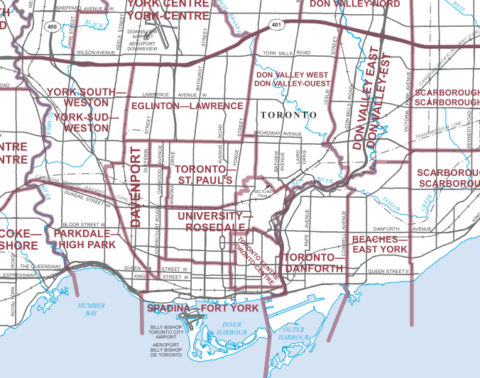
The electoral boundaries of Toronto-St. Paul’s and nearby downtown Toronto ridings.
Detail of an Elections Canada map of Toronto.
Toronto-Saint Paul’s is defined, among the political experts, as a “safe Liberal seat”. For one thing, it is in the middle of Toronto, where the Conservatives have no members. (The NDP occasionally wins ridings like Parkdale.) According to a pollster, who is (in my opinion) a Liberal party hack, if the Liberals were to lose Saint Paul’s, it would mean that there were no safe seats left for them in Canada. None is the same as zero, incidentally.
Late last night, we learned that the Liberals had lost Saint Paul’s.
It was just a by-election, however. Toronto’s electorate enjoys the kind of deep somnolence that is not permanently correctible. Its people are typical of urban voters everywhere: they are easily convinced by “progressive” fantasists, and environ-mental snake-oil salesmen. Hence, liberal-lefties control all the big-city municipal governments, and provide marionettes to all the national puppet theatres. Those who voted against them will return to snoring mode after just a moment’s consciousness.
At The Line, a rare Jen Gerson column outside the paywall:
The goose. She cooked.
The toast. It burnt.
The frog. It boiled.
[…]
Anyway, my lack of political dedication was well rewarded because I’m now refreshed and well positioned to opine on the great momentous meaning of Don Stewart’s election to the House of Commons to represent the fine people of this section of midtown Toronto. Normally I wouldn’t get too fussed over a by-election anywhere, but in this case a fuss is impossible to avoid.
Two reasons; the first is that I have — in my lovingly Albertan way — referred to this riding as the Dead Marshes. For those who are not Lord of The Rings fans, this section of land is technically considered a reeking wetland that stretches to the south-east of Emyn Muil; a terrible stretch of land that sits just outside Mordor, and final home to the preserved corpses of many Conservative candidates, staffers, volunteers, and hopes and dreams. Every once in a while, their enchanting methane soul lights flare forth, entrancing the unwary or the naïve into the swamp.
Which is a very nice way of saying that St. Paul’s is a bastion of the ruling Laurentian Consensus, a Liberal fortress long held by Carolyn Bennett, and untainted by the stain of Conservative voting intentions since 1993. And yet, Mr. Stewart ventured forth undaunted, and found his path into Mordor (a metaphorical stand in for either Toronto, or Parliament. Interpret as you see fit).
The second reason that this election cannot be ignored is that both the Liberals and the Conservatives have invested it with so much symbolic weight, that the outcome will herald political changes of one kind or another. A 43 per cent turnout rate in a by-election is healthy — even high. Nobody can chalk that outcome up to numerical wonkery. Conservatives were motivated, and progressives were not. The signal is clear.
It is now impossible for an increasingly unglued Liberal caucus to overlook that they are losing. They are losing very badly. A sustained 20-point Conservative lead has been made manifest. If St. Paul’s can crash, they are all at risk. And they can no longer wave that fact away by sniping at pollsters, or blaming misinformation. A plurality of Canadians think they suck at governmenting. This must now be addressed.
Tristin Hopper on the social media site formerly known as Twitter:
June 25, 2024
The Toronto-St. Paul’s by-election
Paul Wells uncharacteristically posted his initial reaction to the Toronto-St. Paul’s by-election after the polls closed, but before the counting was over. He chose … poorly:
[Liberal candidate Leslie] Church’s margin of victory over Conservative candidate Don Stewart bounced around 10 points all Monday night. As I get ready to hit Send on this post, it’s closer to 6 points, and I have no way of knowing whether it will shrink or expand as more results come in. But if it were 10 points, that would be 9.9-ish points more than you need for a victory. I’m especially pleased to report that the result constitutes yet another glorious victory for Wells’s First Rule, which holds that for any given situation, Canadian politics will tend toward the least exciting possible outcome. In particular, in the last several days, I’ve been telling friends that this would be a particularly solid Wells’s Rule victory if the night ended with Tyler Meredith boasting on X. Et voilà:
If you slice the returns finely enough, pace Tyler, they might yield more omens and portents. Ten points would be the Liberals’ narrowest margin in TSP (as I’ll call the riding for short) since 2011, and the second-lowest in 31 years. In 2008, when the Liberals under Stéphane Dion were reduced to 77 seats out of 308, the Liberal margin of victory was more than twice what it was in Monday’s by-election. A 10-point margin of victory in TSP is what Liberals get when there’s almost no water left in the pool.
But so what. A win’s a win. By-elections are a blunt measuring tool. Paying subscribers will fill this post’s comment board with theories to explain away the night’s results, and for all I know, some of them might even be correct. Besides, for a few weeks I’ve believed that even if the Liberals had managed to lose TSP, there would have been no public or organized effort within the party to remove Justin Trudeau as leader. You can’t teach an elephant to dance, or a Trudeau Liberal to abandon the internal loyalty that has been one of the hallmarks of his leadership.
So if I’m a Liberal MP — humour me, it’s a thought experiment — I now know what the next year looks like. Justin Trudeau has spent his adult life waiting for the rest of us to realize he was right all along, as we saw in a book that was published last month to extravagant praise. The returns from Toronto will comfort the big guy’s belief that the scales have again begun to fall from Canadians’ eyes, and that therefore this is absolutely the worst time to mess with a winning formula.
He’ll stay. Katie will stay, Ben will stay, Chrystia will stay, Mélanie and Seamus and Max and Clow and all the cats will stay, and the Trudeau team will show new spring in its step as it prepares to get, once more, off the ropes and back into the fray.
To be fair, he did add an update overnight indicating that Stewart had pulled ahead but the counting was still ongoing, and a link to the Elections Canada preliminary results, which I screencapped here just after 9am:
This morning, Mr. Wells posted a follow-up to yesterday’s ever-so-slightly misleading article:
Well, of course I saw it coming all along. What kind of fool could have imagined the Liberal in Toronto — St. Paul’s had any chance?
Hang on. I’m just getting word that I didn’t see it coming. In fact, as recently as Monday night I wrote a post I’ll be hearing about until the cows come home. Sorry about that!
Here are the actual final results, barring any recounts, which may not happen because Conservative Don Stewart’s margin of victory, while slim, is too large to trigger an automatic recount.
Congratulations, Don Stewart! I never doubted you’d win. Hang on. I’m just getting word that I doubted you’d win as recently as last night.
Things will now start to happen quickly. Expect Liberals to work their way through four of the five Kübler-Ross stages of grief before lunch. Denial will come easily, benefiting as it does from long practice. Acceptance may take longer.
In part this is because on paper there isn’t that much to accept. The day’s news is not earth-shaking and, in isolation, should not be taken as definitive. It’s true that by-elections are strange events, though if you add them together they do have some predictive power. It’s true that Leslie Church’s long service as Chrystia Freeland’s chief of staff turned out to be more of a hindrance than a help, a data point whose implications the Deputy Prime Minister won’t want to think much about today. It’s true the Liberals didn’t even try all that hard, if by “didn’t try all that hard” you mean “they tried as hard as they possibly could, my God they tried so hard, my God.”
But a single off-season defeat in a riding the Liberals have, in fact, previously lost during the Paleozoic era is not a larger thing to accept than, say, a punishing loss to Ireland and Norway in a Security Council vote at the UN. Or the loss of two senior cabinet ministers in a controversy in which the ministers who quit were radiantly, obviously in the right. Don’t take my word on that, incidentally: ask David Lametti, who agreed with Jody Wilson-Raybould but managed to keep his job anyway. For a while.
I imagine there’ll be a lot of interesting commentary from other Canadian sources as the day rolls on and the immediate horror starts to recede…
The ebbing tide of Corbynism
In Spiked, Brendan O’Neill finds the humour in the staggering collapse of the Corbynist wing of the British Labour Party, from being tantalizingly close to forming a government to today’s political knife-fight for a single seat in North London:
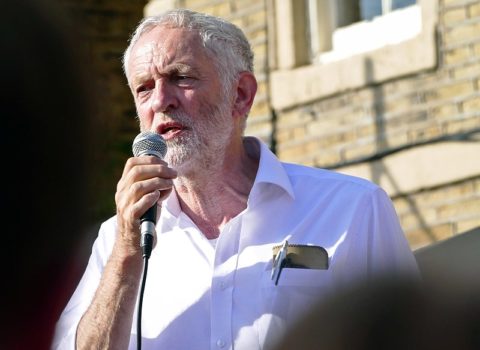
Jeremy Corbyn, then-leader of the Labour Party speaking at a rally in Hayfield, Peak District, in 2018.
Photo by Sophie Brown via Wikimedia Commons.
Schadenfreude is an unbecoming emotion, I know. But if you think I am not going to derive at least fleeting pleasure from the fact that the Corbynista movement went from being on the cusp of government to fighting tooth and nail to hold on to one poxy constituency in north London, then you are off your rocker. We must all find mirth wherever we can in this drabbest of elections. And I find mine in the staggering contraction of Corbynism, the almost total collapse of this cause that was once so beloved of every trustafarian Trot, Glasto wanker and they / them fruitloop.
It’s nearly too funny for words. Five years ago, Jeremy Corbyn and his crew were eyeing up Downing Street. They were in the running to run the country. Now they’re entirely concentrated in Islington North. Corbyn once commanded vast crowds of affluent youths at Glastonbury, basking in their posh chant of “Oh, Jeremy Corbyn!”. He had whole armies of time-rich tweeters who put their expensive education to good use by barking at us “gammon” about how “Jez” was “the absolute boy”. Now he can just about rustle up a few score political anoraks to go canvassing for him in a little bit of north London. It would require a heart of stone not to laugh.
Much has changed for “Jez” in the past five years. He was leader of the Labour Party back then. Now he isn’t even a member of the Labour Party. He was suspended in 2020 after he said the scale of Labour’s anti-Semitism problem under his leadership from 2015 to 2020 had been “dramatically overstated for political reasons“. Then he was officially expelled this year after he announced his intention to stand as an independent in Islington North, the constituency he represented for Labour since 1983. The man who wanted to be PM is now fighting for his life to remain an MP. We’ve gone from “socialism in one country” to “socialism in one constituency”.
Die-hard Corbynistas are flocking to Islington North as if it were the Paris Commune under attack from Versailles. They’re beating the streets to plead with constituents to return the absolute boy to parliament in order that socialism might yet live. The list of starry names Corbyn has dragooned to his door-knocking cause reads like a Sky News producer’s rolodex of wankers. Shola Mos-Shogbamimu, anyone? Yes, I’m sure her post-truth bollocks about “all white people [having] white privilege” will go down a treat among the white working classes on the council estates of Archway.
There’s Grace Blakeley, too, a privately educated flapper-girl socialist who thinks flouncing out of a book festival is “collective action“. That’s how she described her decision to withdraw from the Hay Festival over its receipt of funds from the investment management firm, Baillie Gifford. Tweeting “I’ve decided not to go to Hay” is the well-heeled millennial’s Battle of Orgreave. Perhaps Ms Blakeley will compare her class-war wounds with those of some old Irish fella she meets in a pub in Holloway when she’s out electioneering for the boy.
“Nigel Farage’s sin […] was to tell the truth which our rulers and their bought, sycophantic media are desperate to hide from us”
As the British general election rumbles into its final days, most media outlets reacted very strongly to Nigel Farage’s willingness to break with the narrative over the outbreak of the Russo-Ukrainian war:
Nigel Farage has really got the elites and their prostitute mainstream media panicking, this time by being the only politician who dares tell the truth about the origins of the Russia-Ukraine war.
First let me stress that I am not condoning Putin’s invasion of Ukraine. But Putin has made it very clear for at least the last 15 years that he saw Ukraine and Georgia, which both have long borders with Russia, joining Nato as an existential threat to his country and warned “not an inch eastwards”.
The West arrogantly ignored Putin’s warnings. That was dumb.
At a conference in April 2008, where Putin was invited to address Nato leaders, he warned that inviting Ukraine and Georgia to join Nato, and thus parking Nato troops and missiles directly on Russia’s borders, would be seen as an existential threat to Russia’s security. This was even reported in the BBC’s in-house rag, the Guardian, on April 4 2008: “The Russian president, Vladimir Putin, today repeated his warning that Moscow would view any attempt to expand Nato to its borders as a ‘direct threat'”.
In December 2021, Putin yet again warned the West that allowing Ukraine and Georgia to join Nato would be unacceptable, in the first minute of this three-minute video. In this video Putin (sensibly in my opinion) asks whether the US would allow Russian troops and missiles to be positioned along its borders with Canada or Mexico and reiterates his “not an inch eastwards” threat.
Yet in January 2022, the US presented its written response to Russian demands on Ukraine not joining Nato and on Nato troops being withdrawn from Romania and Bulgaria, but made clear that it did not change Washington’s support for Ukraine’s right to pursue Nato membership, the most contentious issue in relations with Moscow.
The reply, which was delivered to the Russian Foreign Ministry by the US ambassador in Moscow, John Sullivan, repeated the US offer to negotiate with Russia over some aspects of European security, but the Secretary of State, Antony Blinken, said the issue of eventual Ukrainian membership of the alliance was one of principle.
Blinken was speaking hours after his Russian counterpart, Sergei Lavrov, threatened “retaliatory measures” if the US response did not satisfy the Kremlin.
“Without going to the specifics of the document, I can tell you that it reiterates what we said publicly for many weeks, and in a sense for many, many years. That we will uphold the principle of Nato’s open door”, Blinken said, adding: “There is no change. There will be no change.”
June 24, 2024
June 23, 2024
California has “a governing class that wants you to give them power, then shut up and go away”
Chris Bray illustrates some of the many ways that California’s elected politicians are working to ensure that mere voters won’t interrupt their urgent and necessary work:
The Taxpayer Protection Act, a proposed referendum that got enough signatures to qualify for the November ballot, would have required voter approval for all new state and local taxes. State election officials agreed that it met the qualification threshold, and planned to put it before the voters. Democratic officeholders sued, with considerable support from public employee unions and interest groups, and the California Supreme Court ruled this week that the measure may not be placed on the ballot — because it improperly proposes to revise the state constitution, rather than merely amending it. You can watch them try to parse that distinction here, for seventy murky pages. You can change the state constitution through the referendum process, but you can’t change the state constitution through the referendum process. See, totally clear.
At the same time, California Governor Patrick Bateman is telling the organizers of a ballot measure that would increase penalties for drug and theft crimes — after a decade of sharply reduced penalties — that he’ll punish them by blocking criminal justice reform measures in the legislature unless they pull their measure from the ballot. The intended message is a very clear threat: If you insist on your ballot measure and lose at the polls, you’ll be punished with a complete blockade on your agenda through legislative means, for as long as we can manage it.
And a parental rights proposition that aimed for a place on the November ballot — falling short in its efforts to gather enough signatures — ran into a wall when the attorney general’s office assigned it a misleading label that would have described it to voters as a repressive measure that was intended to hurt children.
So a Progressive reform, the great 20th-century transition to direct democracy, is running into a progressive wall of resistance in the 21st century. California Democrats are fighting to limit the likelihood that voters will interfere with their agenda.
People outside California often shrug at the decline of the state, because Californians are just getting what they voted for. But that view misses a bunch of strangeness and ambiguity in a place that has tended to put Democrats in office, then limit their efforts with an ideologically inconsistent hodgepodge of conservative and libertarian ballot measures. The governor and the state legislature just sued to prevent their own voters, the people who sent them to public office, from voting on the new taxes they create. Democrats against direct democracy — a governing class that wants you to give them power, then shut up and go away.
This is not merely a California problem. I wrote a few days ago about the scumbag Robert Kagan and his idiotic book warning that America is facing a rebellion. Here’s the back cover of the book, and I’ve used sophisticated media software to circle the important part:
“The problem is and has always been the people and their beliefs.” This is what the American governing class believes, now. See also the pro-democracy warrior Tom Nichols and his recurring theme about the repulsive people of an ignorant country. We need to protect democracy by getting all the trash that makes up the population to somehow go away and stop bothering their wise and benevolent betters.
The great point of cognitive slippage in American governance has been the degree to which Americans have been willing to vote for officeholders whose agendas they then try to block through lawsuits, referendums, and popular resistance. We’ve voted for shit sandwich over and over again, then declined to eat the whole sandwich. The governing class is now announcing that we’re no longer allowed to refuse the complete meal. You may not have a ballot measure on that.
In the near term, and in the medium term, that pivot leads to greater friction and accelerated decline. In the longer term, preventing people from limiting the aggressive failure of the governing class can only make that failure more apparent. Geological faults that have a lot of small movements release tension in a series of minor earthquakes; faults that can’t release tension through small movements eventually have one big one. We’ll eventually recognize the California Supreme Court’s decision this week as a Pyrrhic victory. There will be more of these, in a political system of increasing brittleness.
The amazing range of things Britain’s Ofcom gets its tentacles into
Earlier this week, Mark Steyn discussed the British government’s Office of Communications (Ofcom) and the way it rigs regulates who can say what during British election campaigns:
Why do I think the UK state censor Ofcom should be put out of business? Because there are very few areas of British life that this strange, secretive body does not “regulate”. Take, for example, this current UK election campaign, which the media are keen to keep as a torpid Potemkin struggle between TweedleLeft and TweedleRight. So, on Thursday night, BBC bigshot Fiona Bruce will host a debate between the four party leaders – that’s to say, the head honchos of the Conservatives, Labour, the Liberal Democrats and the Greens.
Wait a minute: what about Nigel Farage, leader of the Reform party? Since the beginning of the year, Reform has been third-placed in the polls, ahead of the LibDems and Greens, and last week they rose to second place ahead of the unlovely Tories.
So why wouldn’t the second-place party get a spot in the leaders’ telly debate?
Ah, well, you’re looking at it all wrong, you hick. Here’s how the Beeb explain it:
The Ofcom guidance gives “greater weight on the actual performance of a political party in elections over opinion poll data” taking into account the “greater uncertainty associated with support in opinion polls”.
The “actual performance of a political party” refers to their results in the two previous elections — 2019 and 2015 — when Reform didn’t exist. A lot of other things didn’t exist in 2015: Brexit, Covid, lockdown, the Ukraine war, legions of vaccine victims, the massed ranks of Albanian males occupying English country-house hotels …
But, per “Ofcom guidance”, Campaign 2024 has to be conducted on the basis of how things stood a decade ago.
You know who would also be ineligible to participate under Ofcom’s rules? Everyone’s favourite Lana Turner sweater-girl in Kiev, Volodymyr Zelenskyyyyy. He only formed his Servant of the People party in late 2017, so no election debates for you, sweater-girl. And don’t try blaming it on Putin, because it’s “Ofcom guidance” so we all know it’s on the up-and-up.Because, as their barrister assured the High Court, Ofcom are “expert regulators”. Lord Grade and Dame Melanie Dawes probably did a module in regulation at Rotherham Polytechnic or whatever.
I can see why the likes of Naomi Wolf’s creepy stalker-boy Matthew Sweet like this system: it’s a club and they get to decide who’s admitted. It’s less obvious why the generality of the citizenry put up with it. At any rate, get set for another thrilling BBC election debate in which all four “opponents” agree on Covid, climate, Ukraine, the joys of mass Muslim immigration and the inviolability of the NHS … but ever more furiously denounce each other for not tossing enough money that doesn’t exist into the sinkhole.
Don’t get me wrong, I quite like that pixie Green leader who describes herself as a “pansexual vegan”, and I certainly don’t have the personal baggage with her that I have with Nige. But under what rational conception of media “regulation” does the six per cent basement-dweller get guaranteed a seat at the table but not Reform?
And you wonder why nothing changes?
June 22, 2024
“We can learn a lot about our betters from looking at each exception to their rules”
Julie Burchill isn’t a soccer fan, but she points out that the “exceptions” to the usual “rules” that the kakistocrats allow during international soccer tournaments tell us a lot about them:
Patriotism is not the only “bad” thing we’re suddenly “allowed” to do in the weeks when the national team plays on the world stage. The BBC in particular reminds men that they can disregard the finger-wagging for a few brief weeks. In EastEnders, male characters cringingly ask their mates to “get the beers in for the game”. Alcohol would generally be condemned as a public-health menace by Auntie, but during “The Game”, one more “cheeky” tipple apparently won’t hurt you.
We can learn a lot about our betters from looking at each exception to their rules. Don’t be racist – except against Jews. Believe all women about sexual assault – unless they’re Israeli. Oh, and be careful not to “culturally appropriate” the slightest thing from any other nationality, even to the point of never wearing a sombrero in a Mexican restaurant – but it’s fine to be a cross-dressing man culturally appropriating my sex. Meanwhile, if you’re a woman, be a good little Transmaid and stand by smiling, even if you call yourself a feminist.
Like most other places in the West in these dog days of civilisation, England feels like a nation devoid of hope and pride. Even so, being allowed to take pride in some overpaid ball-kickers, but not in the fact that this country contributed massively to ending slavery – lest we be called out as White Saviours – is a somewhat surreal situation to find ourselves in, after all those centuries of blood, sweat and struggle.
Flying the flag for the duration of the Euros is like being a eunuch who’s permitted to have his nuts back for a couple of weeks – for old times’ sake – and wear them as earrings. But those who indulge must be sure to tear their St George’s down sharpish once the festivities are over, lest they be fingered as a fascist for liking their own flag more than others. Remember, the only flag that can be flown constantly now is the Pride flag. This must be saluted respectfully wherever it pops up – failure to do so may identify you as an unworthy citizen of Soft Play Pit Nation.
June 21, 2024
“Neoliberal ideology is antidemocratic at its very core. Its aim is to give free-reign over our societies to corporations, not citizens”
Tim Worstall responds to a recent Medium essay by Julia Steinberger which illustrates that “neoliberal” has joined “fascist” as a generic term to indicate strong disapproval of a person, organization, or idea:
The idea that an adult woman can believe these things is just amazeballs. But here we are. A tweet from Julia Steinberger leads to her Medium essay about what’s wrong with the world.
An upheaval in 10 chapters:
1. The cause. We know the climate crisis is brought to us by highly unequal and undemocratic economic systems.
Err, no? Emissions are emissions. 100 people emitting one tonne each is exactly the same as 1 person emitting 100 tonnes. Sure, it’s true that a more unequal society will have more people emitting those 100 tonne personal amounts. But a more equal society will have more people able to emit another 1 tonne each. For, more equality is by definition the movement of some of those assets of the richer to those poorer — the economic assets which either allow or do the emitting. Sure, Jim Ratcliffe’s £50,000 private jet flight emits more than my £100 Easyjet one. But if we take the £50k off Jim and give it to 500 folk like me then all 500 of us might spend the marginal income on an Easyjet flight each — which would be more emissions than Jim’s spending of the money.
It simply is not true that economic inequality is the heart, the core or the cause of climate change. It’s idiocy to think it is too.
Of course, we know what’s happening here. Climate Change is Bad, M’Kay? Which it is, obviously. Economic inequality is Bad, M’Kay? Well, there the evidence is a great deal more mixed but whatever. But in the minds of the stupid all bad things have the same cause. So, if inequality is bad, climate change is bad, then they must be the same thing because they’re Bad, M’Kay?
2. The rise. The recent history of these economic systems, in the Americas and Eurasia, is dominated by the ascendance of neoliberal ideology.
Oh, that is good. Given that I am a neoliberal — a fully paid up one, Senior Fellow at the Adam Smith Institute and all — that’s very good. Given HS2, looming wealth taxation, the increased bite of idiot regulation and all that I can’t say that I see neoliberalism as winning right now but that might depend upon your starting point. If you’re a socialist — or an idiot but I repeat myself — you might well regard the plenitude of bananas in the supermarket as neoliberal. After all, that is something that socialism never did achieve.
3. The threat. Neoliberal ideology is antidemocratic at its very core. Its aim is to give free-reign over our societies to corporations, not citizens.
And, well, you know, bollocks. The very beating heart of neoliberalism is that corporations need to be controlled and they’re best controlled by the citizens. In the form of free markets rather than voting on which bureaucrats get the gold plated pension, true. But neoliberals are between indifferent and actually against capitalist power. The whole nub of the idea is that markets do the job of controlling capitalists better than bureaucrats, politicians or, obviously, capitalists.
There’s not really any way for her thesis to survive after getting so much of the basics wrong, is there?
But just one more tidbit:
Hayek and his neoliberal colleagues now needed another, antidemocratic way, to organise society. They didn’t want democracy, but they wanted some kind of self-maintaining organisation — by which they meant hierarchy. Organisation was supposed to be supplied by the market, and hierarchy by competition within markets. (It’s worth noting that neoliberals in the 1950s did not, although they should have, predict that unfettered markets lead to concentrations in monopolies or cartels. They would arguably disapprove of the vast corporations running our current economies, even though their market-above-democracy policies predictably brought them into being.)
Well, that wasn’t actually the last tidbit. But the idea that Friedman, Mises, Menger, Hayek and the rest didn’t worry about monopolies? Jesu C is really bouncin’ on that pogo stick right now. And then the idea that democracy will be better bulwark against monopolies than markets? Can you actually do backflips on a pogo stick?

